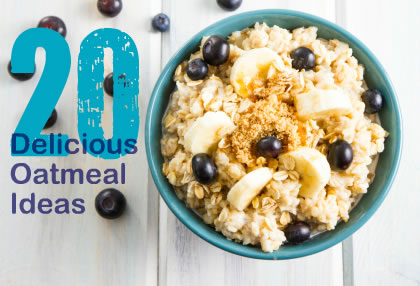We've all heard the line about "failing to plan is planning to fail," and when it comes to healthy eating for weight loss and maintenance, it couldn't be more accurate. You can exercise all day long, but if you're not eating the right foods (or if you're eating too much of the wrong ones), all the hard work in the world won't be reflected on or off the scale. And poor dietary choices are almost always a direct result of not having a plan.
Think about how much thought and effort you put into your workouts—what to wear, what type of exercise to do, how long and how intense, which songs to add to your playlist. Doesn't your nutrition, which most experts agree has a far bigger impact on your weight than exercise, deserve the same level of planning?
Meal prep is one of the main tools health coach Liza Baker uses to help her clients achieve their weight loss goals. "Prepping food ahead—whether it's chopping veggies for the week, putting together salads in a jar for the week, making extra batches of sauce and freezing some, or making complete meals—[any of these tactics] can make cooking from scratch at home an easier choice than getting takeout or going out to eat," she says.
If you've always assumed that you were born without the cooking gene, and if the idea of spending quality time with pots and pans makes your fingers itch for the takeout menu, the concept of meal planning can seem overwhelming at first. But if you're serious about weight loss, the path to your dreams starts in the kitchen.
5 Good Reasons to Start Meal Planning
1. It saves you from the takeout trap.
We've all been there: Tired, time-crunched and headed for "hangry" territory. With all those strikes against you, you're more vulnerable to the siren song of the fast-food drive-thru or pizza delivery app. After all, the entire convenience food industry is designed to cater to people who believe they don't have enough time or energy to cook.
Meal planning nips those stubborn excuses in the bud. When you have healthy meals prepped and ready to go, Chinese takeout goes from being a necessary evil to—well, just plain evil.
2. It saves time in the long run.
Spending a few hours in the kitchen doesn't exactly top our list of favorite ways to spend a Sunday afternoon, either, but you'll reap way more culinary rewards from that one longer chunk of time than you would by spending an hour or two cooking every evening.
If you’re intimidated by the thought of prepping a week’s worth of meal’s in one day, spend some time doing smaller tasks like chopping onions or marinating chicken breasts, instead. That way, when a stressful day threatens to ruin your healthy intentions, you’ll have the ingredients ready to whip up a dinner in no time.
Nutrition expert and author of “The Healthy Meal Prep Cookbook” Toby Amidor, M.S., R.D. is a huge proponent of meal prepping. "Advanced prepping helps to minimize cooking time, especially during a busy work week," Amidor says. "For those trying to lose weight, time-saving tips help to make healthy eating possible, and help to overcome the barrier of time constraints."
3. You'll be able to snack smarter.
We've all had those days when we start out on a positive path, patting ourselves on the back for eating a nutritious breakfast and a healthy lunch—only to get sidelined by a three o'clock sugar craving that sends us straight to the vending machine or a co-worker's cookie jar.
Meal prep doesn't always have to be about elaborate entrees. It's also an opportunity to plan nutritious nibbles to have on hand between meals, so sinister snacks don't send your progress spiraling.
Amidor includes plenty of healthy snacks in her meal prepping book. "Having pre-portioned and prepared snacks—like snack bites, granola bars, trail mix, parfaits and the like—already measured and prepared takes the guesswork out of 'what should I snack on?'"
4. It prevents impulse buys.
When you're not following a meal plan, you're more likely to succumb to unnecessary and unplanned additions to your grocery cart. "Creating a meal plan in turn creates a grocery list," registered dietitian Mandy Enright points out. "Only buy items on the list, and no extras that can lead to temping sweet or salty snacks throughout the day."
5. It makes portion control easy.
For those on weight-loss journeys, there's simply no avoiding the need for portion control, a simple concept that can seem virtually impossible when eating at a restaurant or preparing an individual meal. Registered dietitian Meghan Wilkinson says meal prepping is one of the best ways to get your portions under control.
"Watching our portion size is important for weight management, as the typical American (especially when eating out) consumes excessive calories, fat and sodium, as portion sizes have doubled or even tripled over the years," she says. "If you portion out your meals while prepping, you will be in control of how much you are going to eat without the temptation for seconds or thirds."
3 Tips for Meal Prep Rookies
1. Start simple.
You don't have to hit the ground running with complex recipes that call for long lists of obscure ingredients. Amidor advises her clients to start slowly with simple meals first, then gradually add variety. "Begin with simple meals and snacks that are easy to pull off," she suggests. "Choose recipes with fewer than eight or so familiar ingredients that you always have on hand, and then practice them a few times until you get the hang of it."
2. Prep in batches.
Registered dietitian Chelsey Amer realizes that full-on meal prep can be intimidating to those who are new to cooking and healthy eating, which is why she recommends batch cooking instead of focusing on individual meals.
"If you prepare three veggies, one whole grain and a couple of proteins, you can then mix and match all week to keep from getting bored, and you know you'll always have healthy options at your fingertips," she says.
Amidor concurs, recommending that you get the creative juices flowing by preparing one meal and repurposing it in a variety of ways throughout the week. “Cook that chili recipe for the week, but don’t get bored by eating it the same way every day,” she offers as an example. “Serve it with crusty whole-grain bread one night, and in a quesadilla with cheese the next night.”
Or, if you're making a particular meal, Amidor suggests preparing a larger amount or doubling the recipe so you can enjoy half this week, then freeze the other half for a busy week in the future.
3. Plan your prep sessions around your schedule.
Between work, exercise and family obligations, it may seem doubtful that there's any time left for meal prep. The weekends are a popular time to prep for the week ahead, but there are no hard-and-fast rules for when or where to do it.
Enright advises her clients to work backward—first, make a list of the nights when you won't be home for meals, due to things like dinner meetings, date nights or social events, then cross those dates out in the calendar. Next, pinpoint the days when you won't have time to cook due to busy late-afternoon schedules, and account for either a fast meal or leftover to make on those nights.
"The remainder of days are when you can prepare your meals," she says. "Notice how you may only have to cook one to three meals now? Just make sure you plan for those leftovers to have for another dinner or lunch."
See more:
|
|





.jpg)















